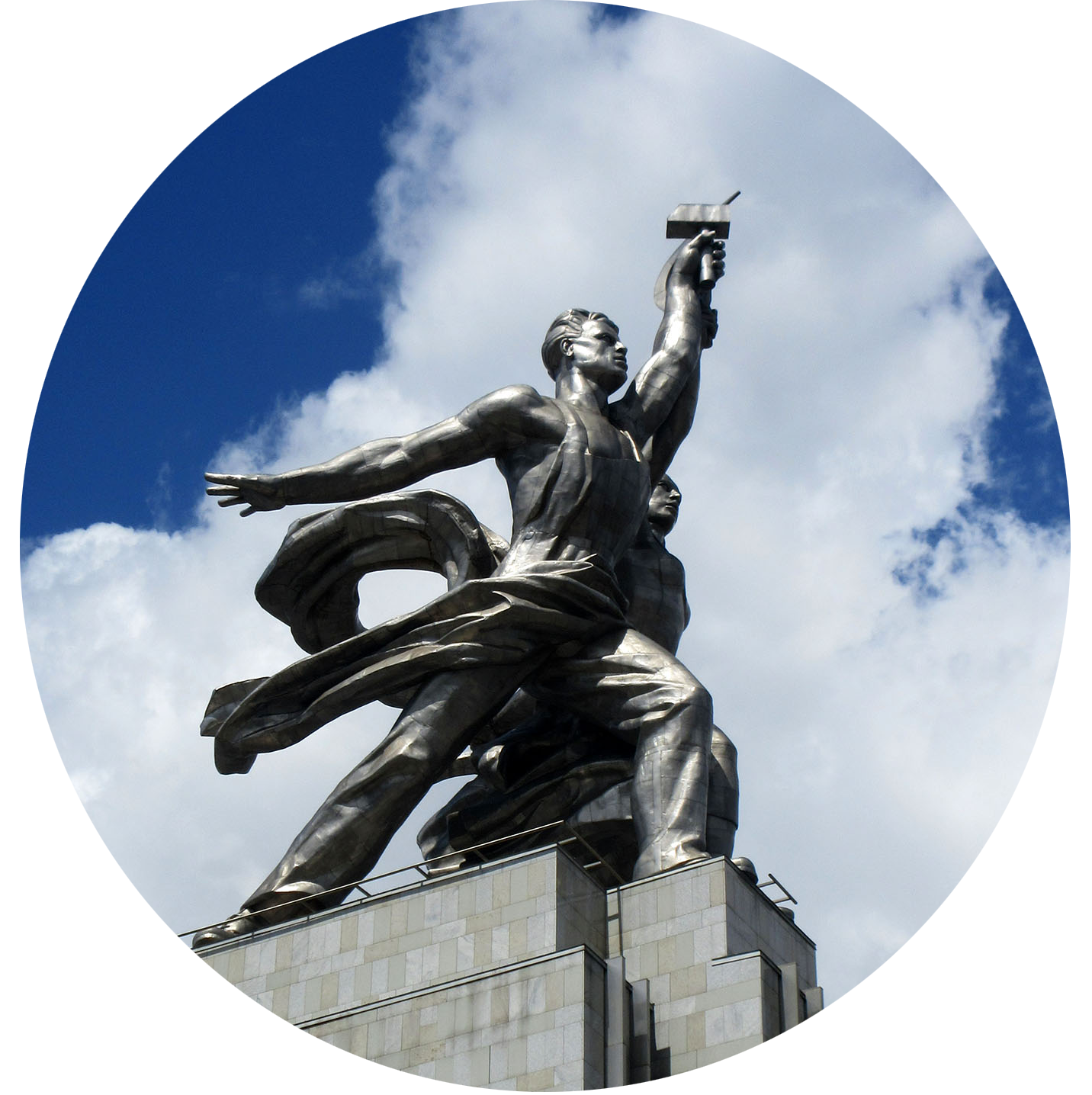City of My Childhood
This song, from a collection of covers by Civil Defense (Гражданская оборона) entitled Звездопад (Starfall), is Yegor Letov’s rendition of a Soviet-era classic sung by Edita Piekha. Sung by Letov, the song takes on a new dimension of bitter irony — in fact, this is a great example of one of Civil Defense’s central lyrical strategies: cited official discourse that is profoundly called into question by the mere act of citation, by the presence of quotation marks. In most of their songs, this would be a single slogan or line of official, “authoritative” Soviet language, which might be given a new intonation (howling, mocking, etc.), and which, in any case, is undermined by the original lyrics adjacent to it.
In this case, this isn’t of course, some official Soviet anthem, but it is an example of officially acceptable Soviet popular culture. There are no original lyrics by Letov — it’s a word-for-word cover — and a fairly straightforward rendering at that — of a classic piece of Soviet-era kitsch, drenched in nostalgia, about a kind of lost childhood utopia. Sung by Letov — who, in his younger days as an anarchist punk rocker, was institutionalized and medicated in ways he compared to the film “One Flew Over the Cuckoo’s Nest” — this rather vapid song takes on unsuspected layers of irony, regret, and ambivalence… about an imagined childhood that never really existed. Again — what is interesting here (from a Bakhtinian perspective, say), is that this is “another’s speech” that become contested (or “multidirectional”) through the simple act of citation. Somewhat uncharacteristically for Letov, it is (to my ear) sung with no marked intonational change — i.e., it is not explicitly mocked or parodied through a change in tone.
Once you’ve heard his version, I suspect you’ll join me in finding Piehka’s version absolutely unlistenable. The video included below features footage from Pripyat, now a ghost city, evacuated following the Chernobyl disaster.
City of My Childhood
Somewhere there’s a city, quiet as a dream.
Buried up to its chest in drifting dust.
In the slow-moving river the water is like glass;
Somewhere there’s a city where there is warmth.
Our distant childhood was passed there.
At night I rush out of my house,
At the train station ticket office I ask for a ticket.
Perhaps for the first time in a thousand years,
Give me a third-class ticket back to my childhood.
The cashier answers quietly: “There are no tickets.”
Fairy tales live in that city,
Wild winds call out to us to follow.
There were times when we were almost driven mad
By the pine trees reaching the sky, the buildings reaching the sun.
There, along the snowdrifts, winter moved inaudibly.
Город детства
Где-то есть город тихий, как сон.
Пылью текучей по грудь занесён.
В медленной речке вода как стекло,
Где-то есть город в котором тепло.
Наше далёкое детство там прошло.
Ночью из дома я поспешу,
В кассе вокзала билет попрошу.
Может впервые за тысячу лет,
Дайте до детства плацкартный билет.
Тихо кассирша ответит: «Билетов нет»
В городе этом сказки живут,
Шалые ветры с собою зовут.
Там нас порою сводили с ума
Сосны до неба, до солнца дома.
Там по сугробам неслышно шла зима
Vocab notes
где-то: somewhere • тихий: quiet • сон: dream • пыль: dust • текучий: drifting • грудь: chest • занесён: covered • медленный: slow • река: речка: river • стекло: glass • тепло: warm • далёкий: distant • детство: childhood • прошло: passed • спешить И / поспешить И: to rush • касса: ticket window • вокзал: train station • просить И / попросить И: to request • может: maybe • впервые: for the first time • тысяча: thousand • год, лет: year • плацкартный билет: a ticket for плацкарт (3rd class) • тихо: quietly • кассирша: cashier • сказка: fairy tale • шалый: wild, crazy • ветер: wind • с собою: along with it • порою: at times • сводить И / свести Д с ума: to drive mad • сосна: pine tree • небо: sky • солнце: sun • дом: building • сугроб: snowdrift • неслышно: inaudibly • шлa: was underway • зима: winter
Affiliate links:









